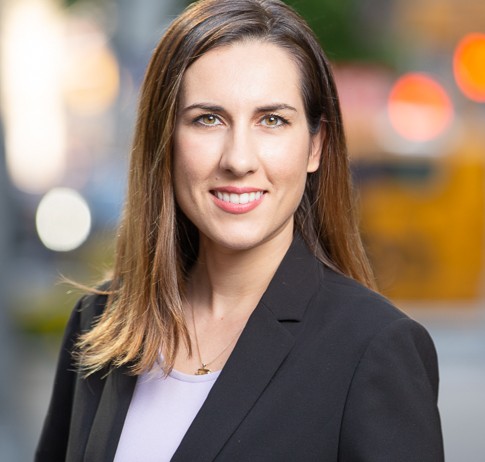Article
The role of mediation in resolving disputes in the MENA region
10 October 2024 | 3 minute read
Mediation has gained increasing significance in the Middle East, becoming a popular alternative to traditional dispute resolution methods. Mediation holds substantial potential for addressing sensitive political and commercial disputes in the MENA region. Strategic mediation can be especially beneficial by encouraging disputing parties to engage in negotiations early on and helping them resolve their dispute.
Recently, MENA states have taken a leading role in mediating inter-state disputes. More broadly, several MENA states have signed the United Nations Convention on International Settlement Agreements Resulting from Mediation (the “Singapore Convention”), which seeks to ensure that mediation agreements are enforceable in the domestic courts of signatory states. Qatar and Saudi Arabia were among the original signatories in August 2019 and became parties to the Singapore Convention in 2020. Türkiye followed suit in 2022. Other signatories in the Middle East include Afghanistan, Iran, Iraq, Israel, and Jordan.
Benefits of Resolving Disputes in the MENA Region through Mediation
Mediation is particularly well-suited to resolving political and commercial disputes between states. By operating within a confidential framework, mediation allows states to address contentious issues without publicizing their differences, allowing them to forge a path forward that preserves and enhances relationships. In this way, mediation functions as a natural extension of diplomacy.
The advantages of mediation in inter-state disputes reinforce its viability as an option for resolving commercial disputes in the region, particularly those involving investors, multinational corporations, or state-owned entities. Mediation offers unique settlement options that may not be available through local courts, while also helping parties save time and costs by avoiding protracted litigation.
Domestic Frameworks Facilitating Mediation in the MENA Region
In recent years, several MENA-based arbitral institutions have adopted or expanded rules that facilitate mediation.
- In October 2023, the Dubai International Arbitration Centre (“DIAC”) adopted new Mediation Rules, which emphasize confidentiality, set clear timeframes for resolution, and provide industry-specific mediators to meet the unique needs of special sectors. 1
- The Saudi Center for Commercial Arbitration (“SCCA”) also has Mediation Rules, last amended in 2018.2 These rules are designed to accommodate local and regional markets while creating a flexible and cost-effective framework.3 On 24 March 2024, the SCCA and the International Centre for the Settlement of Investment Disputes (“ICSID”) agreed to jointly support international investment dispute resolution through mediation. 4
- The Oman Commercial Arbitration Centre adopted Mediation Rules in 2021, which allow parties to tailor the meditation process to their needs. 5
In addition to institutional frameworks, some states have enacted domestic legislation to promote mediation.
- Saudi Arabia published a draft mediation law in December 2023, which aligns with the Singapore Convention. The draft law also emphasizes confidentiality, helping parties engage in candid discussions, thus improving the efficiency of dispute resolution. 6
- The UAE’s new mediation law, Federal Decree-Law No. (40) of 2023 on Mediation and Conciliation in Civil and Commercial Disputes, went into effect in December 2023. 7 The law streamlines mediation frameworks, enshrines confidentiality, and sets limits on the role of mediators. 8
- In 2021, Qatar introduced Qatar Law No. 20/2021 on the Issuance of the Law on Mediation in the Settlement of Civil and Commercial Disputes.9 This law enshrines confidentiality safeguards and provides mechanisms to enforce related agreements.
How we can help
Withers has extensive experience handling high-value international disputes, representing governments, multinational companies and investors in inter-state and commercial mediation. Our global team provides comprehensive assistance, from initial case analysis to negotiating terms and formalizing successful agreements.
We have a proven track record of mediating disputes across sectors, such as natural resources, energy, construction, infrastructure, manufacturing, technology and finance. Where mediation is unsuccessful, our team is well-suited to escalate disputes to arbitration, litigation or proceedings before international or regional courts. Currently, we are representing clients in several international arbitrations in the MENA region, collaborating with local counsel where necessary.
2 - See the SCCA Mediation Rules, available here.
3 - See id.
4 - See ICSID, “ICSID and the Saudi Center for Commercial Arbitration Sign Agreement to Jointly Support International Investment Dispute Resolution,” 6 March 2024, available here.
5 - See Oman Commercial Arbitration Centre Mediation Rules, available here.
6 - See Singapore Convention on Mediation, Qatar, available here.
7 - See Federal Decree-Law No. (40) of 2023 on Mediation and Conciliation in Civil and Commercial Disputes, available here.
8 - Id.
9 - See Mohammed Altammami, Nicholas Sharratt, Ahmed Bobat, Alexander Field, “Countdown To RIDW24: A Maturing Market: Dispute Resolution in Saudi Arabia,” Wolters Kluwer, 28 February 2024 available here.


